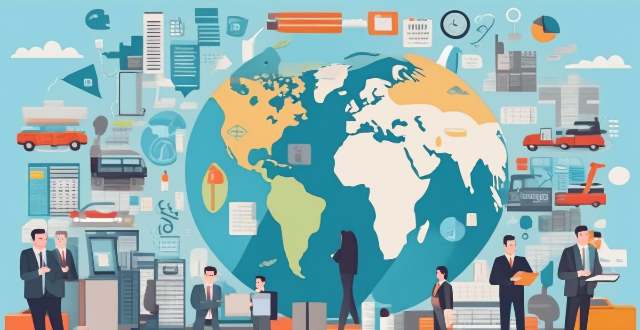The global economy is influenced by various interconnected factors including digital transformation, sustainability, global trade dynamics, monetary policies, and the rising influence of emerging markets. These trends are reshaping industries, fostering innovation, and influencing economic growth and policies worldwide.

Global Economic Trends: An In-depth Analysis
The global economy is an ever-evolving landscape, with numerous factors influencing its trajectory. As we delve into the latest trends, it's essential to understand that these trends are not isolated occurrences but rather interconnected facets of a larger economic ecosystem. Here's a detailed breakdown:
1. Digital Transformation and Technology Advancements
a. Rise of Artificial Intelligence (AI)
- AI has become a game-changer in various sectors, from healthcare to finance.
- It's enhancing efficiency, reducing costs, and fostering innovation.
b. Blockchain Technology
- Blockchain is reshaping industries like banking and supply chain management.
- Its transparency and security features are being increasingly recognized.
2. Sustainability and Green Economy
a. Renewable Energy
- There's a global shift towards renewable energy sources like solar and wind.
- Governments and private organizations are investing heavily in this sector.
b. Circular Economy
- The concept of reducing waste and reusing resources is gaining momentum.
- Companies are adopting sustainable practices to minimize environmental impact.
3. Global Trade and Protectionism
a. Trade Agreements and Disputes
- New trade agreements are being formed, while existing ones are being renegotiated.
- Trade disputes, like those between major economies, can significantly impact global markets.
b. Rise of Protectionism
- Some countries are turning inward, implementing policies to protect domestic industries.
- This trend could potentially hinder global economic integration.
4. Monetary Policy and Interest Rates
a. Central Bank Policies
- Central banks around the world are adjusting monetary policies to combat issues like inflation or economic slowdown.
- Changes in interest rates have a direct impact on investment, consumer spending, and overall economic growth.
b. Inflation Concerns
- Inflation rates vary across countries, with some experiencing higher rates than others.
- Central banks are tasked with managing inflation without stalling economic growth.
5. Emerging Markets and Global Economic Power Shift
a. Growth in Emerging Markets
- Countries like India, China, and Brazil are experiencing rapid economic growth.
- They're becoming significant players in the global economy, shaping future trends.
b. Economic Power Shift
- The balance of economic power is gradually shifting from traditional powers to emerging markets.
- This shift could lead to changes in global economic policies and alliances.
In conclusion, the global economy is characterized by a complex interplay of digital transformation, sustainability, trade dynamics, monetary policies, and the rising influence of emerging markets. These trends are not only shaping the current economic landscape but also dictating the course for future developments.